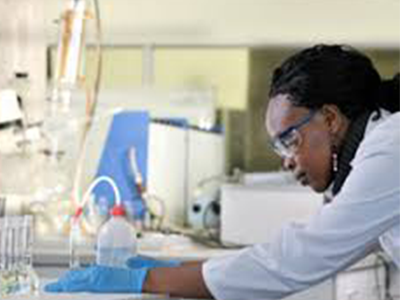Featured Programs and Schools
How Much Time Does It Take to Become a Forensic Scientist
Forensic Science is an advance field that requires an extensive amount of training, education and experience to enter. The amount of time it takes for an individual to become a forensic scientist is largely dependent on the educational path taken. For instance, if you choose to go for a job after you have done your bachelor’s in forensic science, it will take you a little over four years after taking into account an internship or apprenticeship. With higher levels of education, the timeline would vary. In any case, the time taken to become a forensic scientist would depend on education choices, internship length, nature of the employment and the relevant training or certifications it requires.

What does a Forensic Scientist Do?
Forensic scientists make use of various scientific tools to examine criminal evidence. They help solve crimes by visiting the crime scene and gathering all the evidence on the spot. This material is then transferred to the lab for further analysis. Forensic scientists are trained to carry out specialized tests, such as looking for DNA evidence and identifying unknown substances. They document their findings after determining the facts of the case through physical and chemical analyses and eventually help investigators arrive at a probable sequence of criminal events. Forensic Scientists may also be required to give a testimony in court, regarding their conclusions.
Career Outlook for Forensic Scientists
According to the US Bureau of Labor Statistics, the future of the field of Forensic Science is very bright. The 2017 median salary for Forensic Science Technicians was $57,850 per year, with an expected job growth of 17% in the years between 2016 and 2026. This job growth is much faster than the average for all occupations. Around 2,600 jobs are expected to be added in the years up till 2026.
The earnings of a Forensic Scientist depend on the type of industry they are working in, level of education, location, specialty and experience.
State and local governments are expected to add more forensic science technicians to help deal with the heavy case load. In addition to that, the advancements in science and technology would increase the reliability and usefulness of forensic evidence for criminal cases, creating a greater need for forensic scientists.
The industry, however, is likely to remain highly competitive. Therefore, aspiring forensic scientists should consider investing some time and effort in getting a graduate degree in forensic science.
How long does it take to become a Forensic Scientist?
To become a Forensic Scientist, you need to follow a series of steps. Each of these steps would take up a certain amount of your time.
Aspiring forensic scientists are required to complete a comprehensive education plan, due to the highly technical nature of the field. Even though the entry level requirements vary, most of the employers would require at least a bachelor’s degree from an accredited university or college. A four year bachelor’s degree in forensic science can be done with a concentration in chemistry or biology.
If you want to have better job prospects and more career advancement, you may want to opt for a two year long master’s degree in forensic science or a five to seven year long doctorate degree in forensic science.
After you have completed at least a bachelor’s degree, you might want to go for an internship to develop a network of professional forensics. This internship would give you an insight into the workings of a forensic scientist and will enable you to understand the job better. The internship can last two to three months in general.
As a fresh graduate in the forensic science field, you may pursue a training program or apprenticeship as well. Technician or trainee positions are available in various organizations to help develop your skills under the supervision of a senior forensic science professional. Your future employer might also have a training program in place.
Employment prospects for you would be the greatest with your city, state or county crime labs. Federal law enforcement agencies are also potential employers and you may even opt to become an independent consultant.
In addition to education, some aspiring forensic scientists also seek various kinds of certifications via a forensic specialty board. Certifications can be an ideal way to get professional recognition or advance to a higher position. The American College of Forensic Examiners International and The American Board of Criminalistics are two of the organizations that offer various certification options.
You May Also Like
Steps to Become a Forensic Scientist
Top 10 Schools for Forensic Scientists
How to Become a Forensic Accountant
